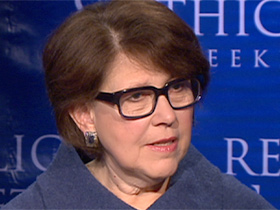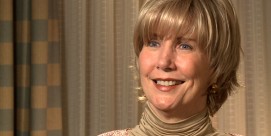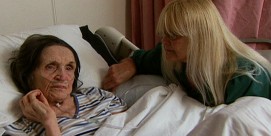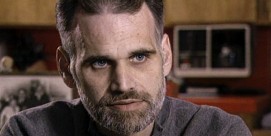BOB ABERNETHY, host: Earlier this year, in April, 29-year-old Brittany Maynard was given six months to live after being diagnosed with advanced brain cancer. She made headlines when she pledged to end her life with the help of a doctor rather than continuing to suffer. Maynard’s announcement has generated much debate, including criticism from some religious groups. Joining me to talk about the ethical issues surrounding the case is Cathy Lynn Grossman, senior national correspondent for Religion News Service, who has been writing about death and dying for many years. Cathy, welcome. It’s good to have you here.
CATHY LYNN GROSSMAN (Religion News Service): Thank you, Bob.
ABERNETHY: How do we all divide on this?
GROSSMAN: Americans divide fairly sharply on this issue. It depends on their value system. If their values are primarily based on what they believe and the personal choices that they want to make, personal control over things, a secular value system versus people who make their decisions based on religious choices, that God alone decides the day of your death.
ABERNETHY: And it’s pretty evenly divided between them.
 GROSSMAN: It is, research has shown.
GROSSMAN: It is, research has shown.
ABERNETHY: What’s the difference between what we’re talking about here and euthanasia?
GROSSMAN: There is a very sharp difference. Euthanasia is deliberately killing somebody else, with or without their consent, whereas this is physician-assisted dying. In the five states where it’s legal, someone following very rigorous regulations, how long they’ve lived there (Brittany Maynard moved from California to Oregon where it’s legal specifically to qualify for this) are given a prescription for lethal drugs. The person takes the drugs themselves if and when they choose to, and not everyone who gets the prescription ever uses it.
ABERNETHY: And what about the family, the other people involved in this? It must be terribly difficult.
GROSSMAN: It’s terribly difficult when somebody is dying, and the best thing you can do for the people that you love is to have advance directives. Talk with the people who care about you and tell them what your wishes are for how you would like to be cared about when your days are nearing an end. And spell it out in writing; make sure they have a copy. Choose someone who can speak for you when you can’t speak for yourself.
ABERNETHY: And do families typically all agree on this, or not?
GROSSMAN: No, they don’t. Which is why it’s really important to have these conversations. There are many resources that you can find online or by mail that will help you talk about this. Or talk with your doctor, talk with your clergyman to help work this out.
ABERNETHY: And name somebody very specifically who you want to have the decision-making power.
GROSSMAN: Name somebody. You do not want to open your eyes in a hospital bed and have your physicians, your children, and your ethicist arguing about your care.
ABERNETHY: Cathy Lynn Grossman of Religion News Service, many thanks.
GROSSMAN: Thank you.

 GROSSMAN: It is, research has shown.
GROSSMAN: It is, research has shown.







